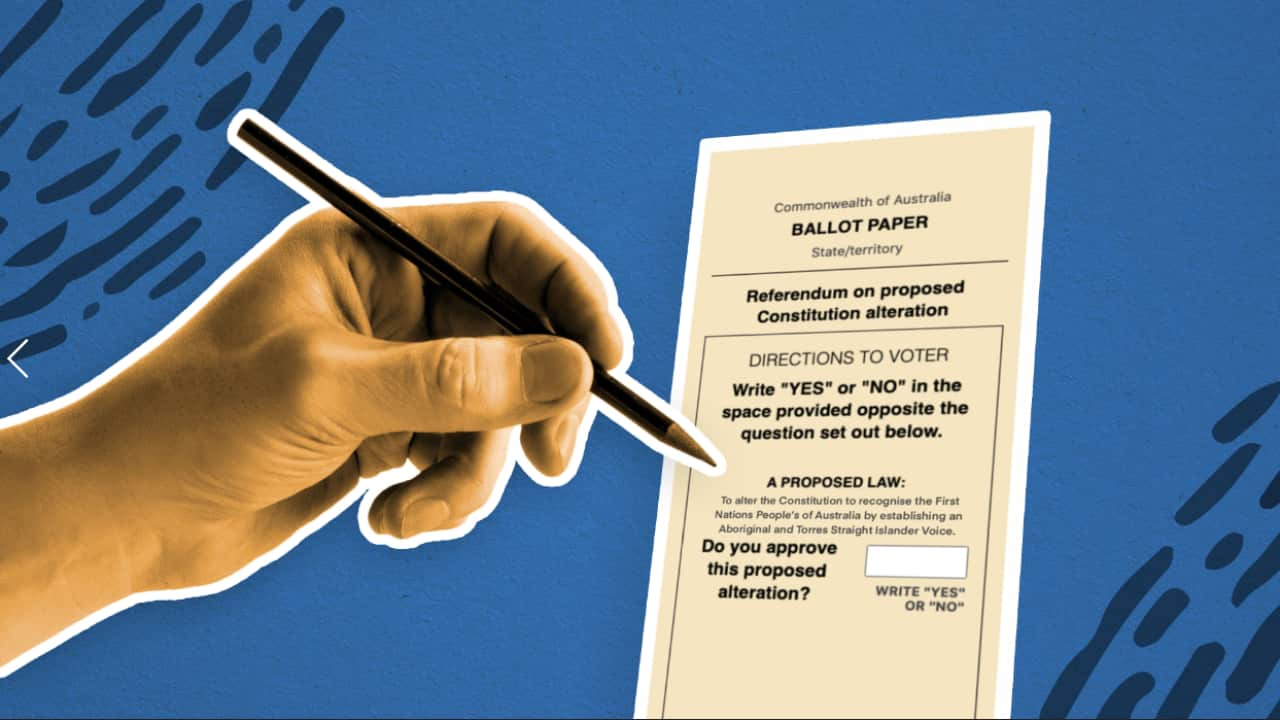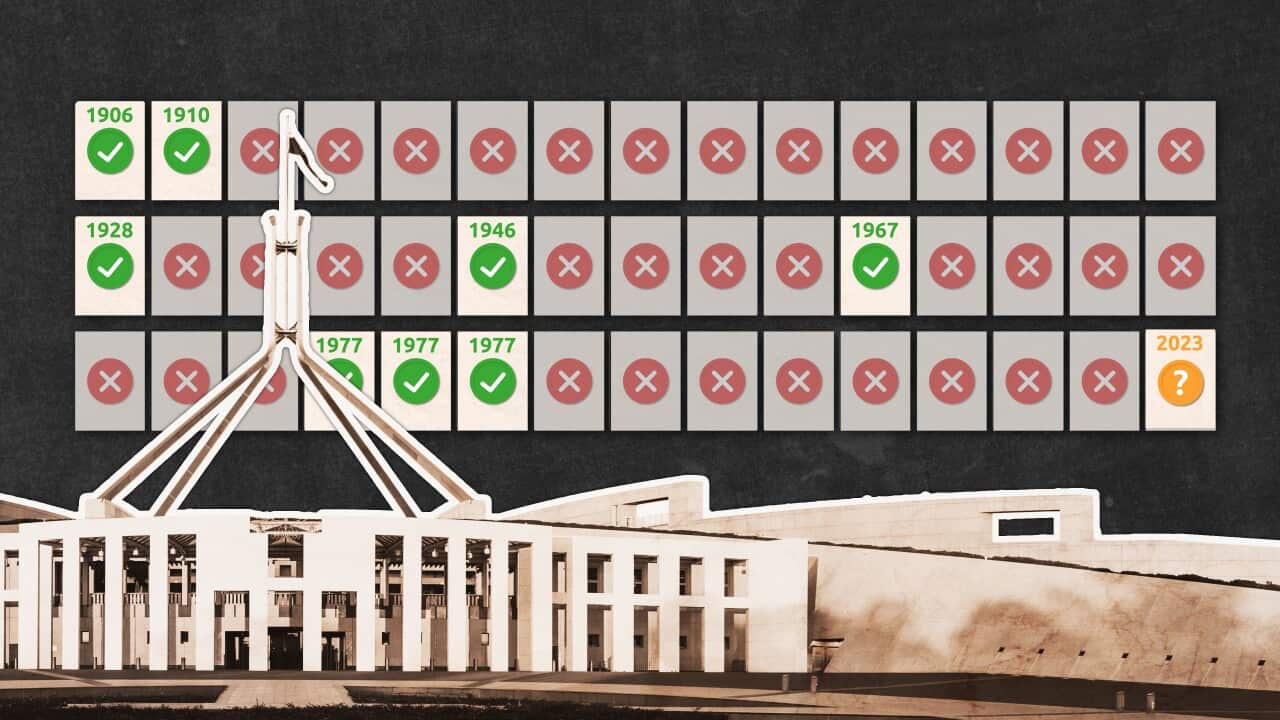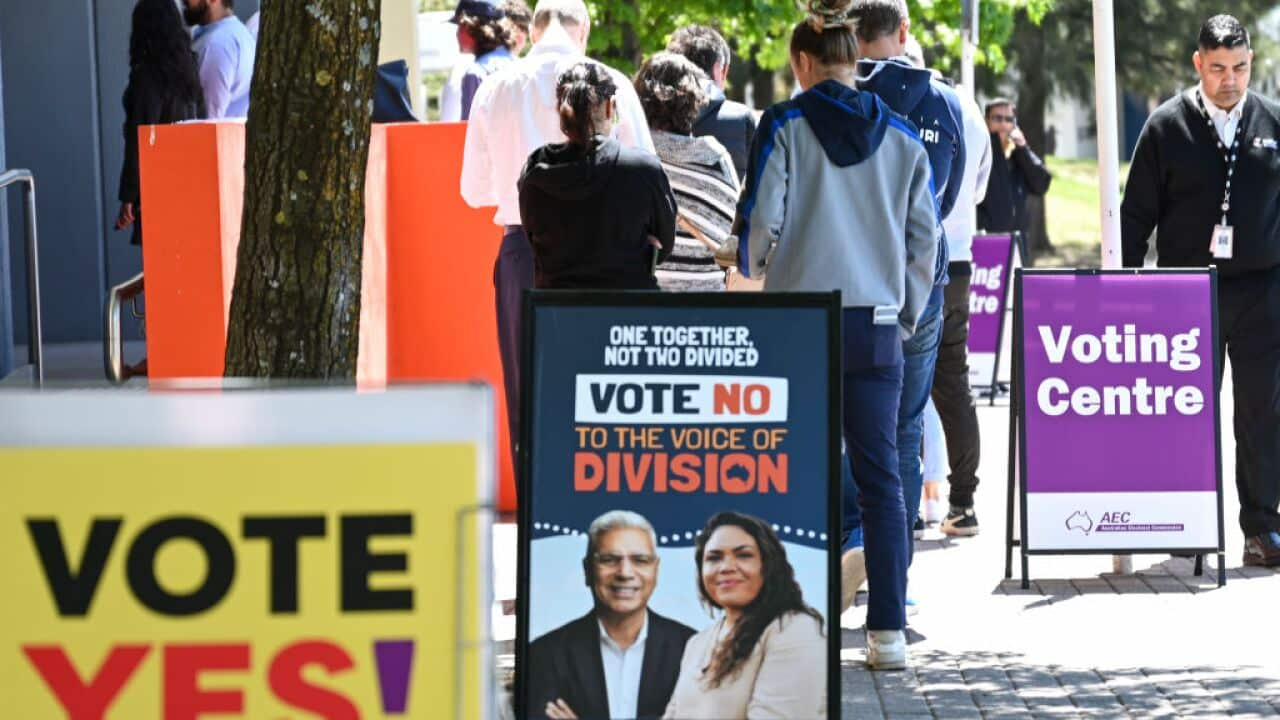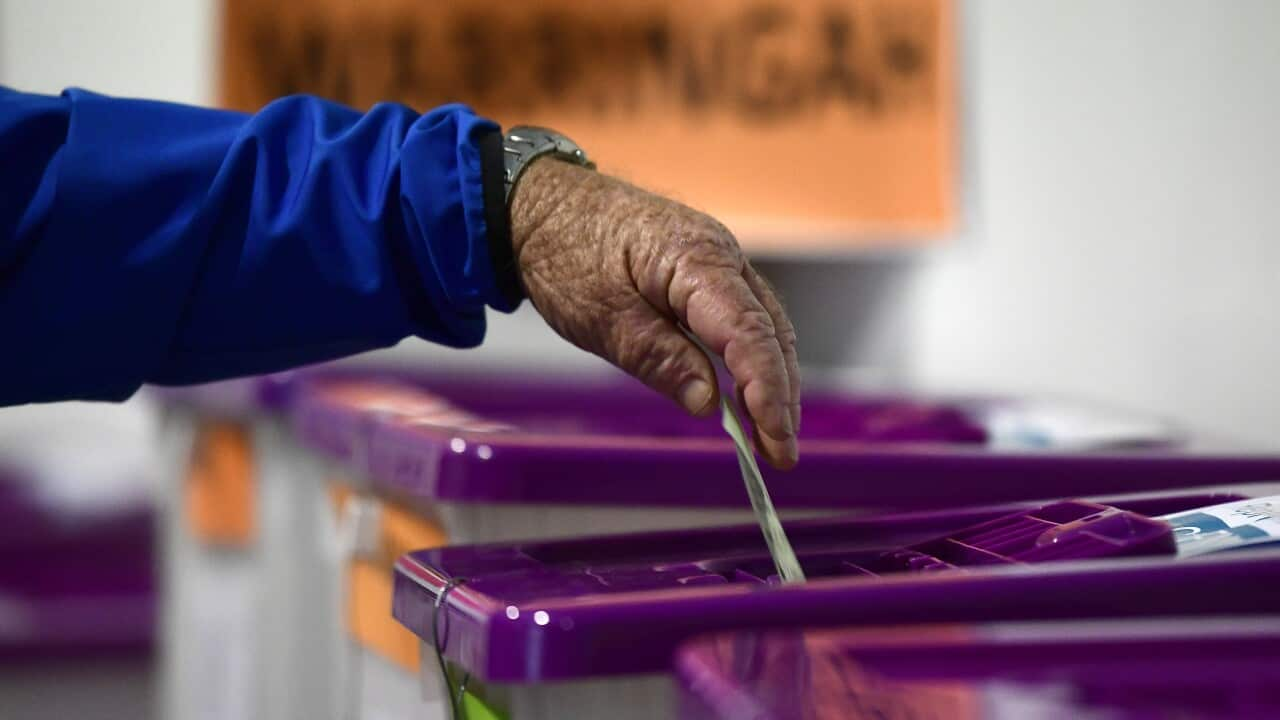

8 min read
This article is more than 1 year old
Feature
This regional town council has backed the Indigenous Voice to Parliament. Do locals agree?
As Australians prepare to vote on 14 October, debate over the Voice to Parliament referendum is heating up in local communities around the nation, including the town of Orange.
Published
Updated
By Francesca De Nuccio
Source: SBS News
Image: Orange deputy mayor Gerald Power is the town’s first Indigenous councillor. (SBS News)
Driving up a sealed and winding road just outside of Orange’s town centre, you reach the summit of Mount Canobolas.
It’s an ancient volcano that stands more than 1,300 metres above sea level. From the top, sweeping views encompass the city of Orange, the rolling countryside and the Blue Mountains in the distance.
The spectacular outlook is accompanied by birds chirping and a light breeze rustling the trees and shrubland.

A drone shot shows the view from Mt Canobolas, a sacred site for the Wiradjuri people. Source: SBS News
As he looks out to the horizon, he says the story of the sacred site revolves around three brothers.
“There was Gaahna-bula, the traditional name for Mount Canobolas; Wahluu, which is Mount Panorama in Bathurst; and the younger brother who came from nearby Mount Macquarie,” Power tells SBS News.
After 18 years of trying to get elected to the town council, last year Power made history by becoming Orange’s first Indigenous councillor.

Deputy mayor Gerald Power is the first Indigenous councillor in Orange's history. Source: SBS News
“Having a voice right here in the chamber allows for a partnership between council and the sacred sites and stories of the region,” he says.
When it comes to , Power is in strong support – so much so that he was part of a successful push last year for council to move a motion in support the Voice.
“We know exactly why we are backing Yes and [it's] because of two simple reasons," he says.
"Recognition in the constitution and a Voice to provide better outcomes for Indigenous people.”
What do local residents think?
Around 40,000 people call Orange home, and almost 8 per cent of the population is Indigenous – a proportion more than double that of the nation as a whole, in which less than 4 per cent identify as Indigenous.
Located in NSW's Central Tablelands, the prosperous town is buoyed by mining, tourism, education and agriculture.
The views of its residents on the Voice are just as diverse as the industries that fuel the town's economy.
Many are keen to understand what it might mean for regional Australia.
That’s why, on a Wednesday night, more than 100 residents filed into the local pub to attend a community forum, ahead of a referendum that could result in the ninth ever amendment to Australia’s constitution.
Power is part of the panel along with independent ACT senator David Pocock, independent member for Calare Andrew Gee and three other community leaders.
It’s a chance for locals to ask questions and find out more, as most attending the forum say there's a lack of understanding about the Voice and what it would look like.
“Honestly, I don’t know much about it, so I’m trying to educate myself and find out more,” says attendee Grace.
“I would say there is a level of apathy about it,” says another attendee, Rurick. “In Orange, there is not a lot of interest in it and maybe that’s because there is not a lot of information driving it.”

The forum panel (from left to right): independent ACT senator David Pocock, Orange deputy mayor Gerald Power, Uluru Youth Dialogue ambassador Alisha Ashland, community advocate Kate Hook, Orange Aboriginal Medical Service CEO Jamie Newman, and independent member for Calare Andrew Gee. Source: SBS News
“Any country that is not mature enough to recognise its First Nations people has a lot searching to do in its soul,” says Greg.
Following the forum, on a bustling Friday morning in Orange’s town centre, SBS News approached many locals to ask for their views on the upcoming referendum.
Along with many Yes voters, there were several people who said they would vote No but didn't want to speak on the record.
“I think it’s just a waste of money – there is more important things that the government should be looking after,” says one local who did not want to be named.
What do local Indigenous Elders think?
Uncle Neil Ingram is a senior Wiradjuri Elder and has lived in Orange for most of his life. He says people may be afraid to speak out against the Voice out of fear of retribution or being called a racist.
“Even if we have an opinion, they don’t respect it and they come down on you,” Uncle Neil says.
“The Yes vote, if they know that you don’t support it, they start condemning and criticising you.
“The Voice is a toothless tiger with no power, and I believe it’s divided our people and divided our great nation.”
He’s come to the local park to meet with other senior Wiradjuri Elders and discuss the upcoming referendum. One of those is Aunty Alice Williams, a community advocate who’s twice been named Elder of the Year at the Orange NAIDOC awards.

Aunty Alice Williams, Uncle Vic and Uncle Neil Ingram (from left to right) are senior Wiradjuri Elders. Source: SBS News
“If you go and ask some of the young people, they'll think you're talking about a TV show,” she says.
“I think the whole consultation process has been geared around people who want to vote Yes. We have over 3,000 Aboriginal people here and only around 50 of them have been consulted so the information is just not getting out there.”
She says the Orange council should be neutral when it comes to the referendum.
“I think it’s what is causing conflict in the community,” she says.
“Council can have an influence on the non-Indigenous community who may feel threatened because they deal with council on a whole range of issues.”
For Uncle Les Powell, concerns centre around representation within the Voice to Parliament.

Uncle Les Powell is concerned about who would be represented in the advisory body. Source: SBS News
Who could benefit from the Voice?
At services like the Orange Aboriginal Medical Service there is hope the Voice will usher in positive outcomes if Australians back the proposal . The not-for-profit, which started in 2005, offers a range of free services in areas such as dental, mental health, disability and aged care.
“The definition of Aboriginal health is not just the physical and emotional wellbeing but the social, cultural and spiritual wellbeing of the individual, family and community,” says CEO Jamie Newman.

Orange Aboriginal Medical Service CEO Jamie Newman hopes a Voice to Parliament will lead to positive change. Source: SBS News
“We need a Voice that is going to understand what we do and not rely on politicians who may be corralled or limited on what they can do because of their party lines,” he says.
As Newman greets his staff and patients, while pointing out the many facilities the service provides, it’s clear he thinks the Voice will make a difference.
“The system has never worked for us, so we have to change that, and we would have got here a lot sooner if we were listened to by government,” he says.
“We understand we are not going to get everything, but we know what our needs are. Listen to us."
Stay informed on the 2023 Indigenous Voice to Parliament referendum from across the SBS Network, including First Nations perspectives through NITV.
to access articles, videos and podcasts in over 60 languages, or stream the latest news and analysis, docos and entertainment for free, at the




